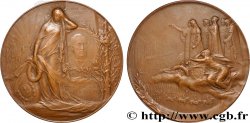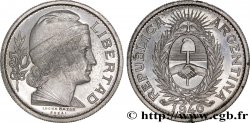E-auction 289-209965 - fme_445945 - ARGENTINA - ARGENTINE REPUBLIC Médaille réalisée à partir d’un Peso
You must signin and be an approved bidder to bid, LOGIN TO BID. Accounts are subject to approval and the approval process takes place within 48 hours. Do not wait until the day a sale closes to register. Clicking on « bid » constitutes acceptance of the terms of use of cgb.fr private e-auctions.
Bids must be placed in whole Euro amounts only. The sale will start closing at the time stated on the item description; any bids received at the site after the closing time will not be executed. Transmission times may vary and bids could be rejected if you wait until the last second. For further information ckeck the E-auctions F.A.Q.
NO BUYER'S FEE.
NO BUYER'S FEE.
| Estimate : | 75 € |
| Price : | 6 € |
| Maximum bid : | 7 € |
| End of the sale : | 29 October 2018 18:56:00 |
| bidders : | 3 bidders |
Type : Médaille réalisée à partir d’un Peso
Date: 1960
Mint name / Town : Argentine
Metal : nickel
Diameter : 25,75 mm
Orientation dies : 12 h.
Weight : 7,05 g.
Edge : striée
Coments on the condition:
Médaille avec un ruban aux couleurs du drapeau argentin
Obverse
Obverse legend : REPUBLICA ARGENTINA - UN PESO.
Obverse description : Blason de l’Argentine.
Reverse
Reverse legend : 25 DE MAYO - 1810-1960.
Reverse description : Vue sur la Place de Mai.
Commentary
Médaille artisanale (?) réalisée à partir d’un Peso, d’un ruban et d’une épingle à nourrice.
La révolution de Mai (en espagnol Revolución de Mayo) est une série d'événements s’échelonnant sur une semaine, qui eurent lieu du 18 au 25 mai 1810 à Buenos Aires. Cette ville était alors la capitale de la vice-royauté du Río de la Plata, colonie faisant partie de l’Empire espagnol et comprenant le territoire des actuels États d’Argentine, de Bolivie, du Paraguay et de l’Uruguay. Lesdits événements, qui sont commémorés en Argentine sous le nom de Semaine de Mai (en esp. Semana de Mayo), conduisirent à l’éviction du dernier vice-roi Baltasar Hidalgo de Cisneros et à l’établissement, le 25 mai, d’un gouvernement local, appelé Première Junte (esp. Primera Junta).
La révolution de Mai était une conséquence directe de la guerre d’indépendance espagnole, qui s’était déroulée au cours des deux années précédentes. En 1808, le roi d’Espagne, Ferdinand VII, abdiqua en faveur de Napoléon Bonaparte, qui fit don du trône à son frère Joseph. Une Junte suprême centrale mena la résistance contre le gouvernement de Joseph et l’occupation française de l’Espagne, mais finit, après avoir subi une série de revers, par perdre la moitié nord du pays. Le 1er février 1810, les troupes françaises s’emparèrent de Séville et étendirent leur domination sur une majeure partie de l’Andalousie. La Junte suprême dut se replier sur Cadix et se dissoudre pour faire place au Conseil de Régence d'Espagne et des Indes. Par des journaux, en provenance d’Espagne et du reste de l’Europe, apportés par des navires britanniques, la nouvelle de ces événements parvint finalement à Buenos Aires le 18 mai..
La révolution de Mai (en espagnol Revolución de Mayo) est une série d'événements s’échelonnant sur une semaine, qui eurent lieu du 18 au 25 mai 1810 à Buenos Aires. Cette ville était alors la capitale de la vice-royauté du Río de la Plata, colonie faisant partie de l’Empire espagnol et comprenant le territoire des actuels États d’Argentine, de Bolivie, du Paraguay et de l’Uruguay. Lesdits événements, qui sont commémorés en Argentine sous le nom de Semaine de Mai (en esp. Semana de Mayo), conduisirent à l’éviction du dernier vice-roi Baltasar Hidalgo de Cisneros et à l’établissement, le 25 mai, d’un gouvernement local, appelé Première Junte (esp. Primera Junta).
La révolution de Mai était une conséquence directe de la guerre d’indépendance espagnole, qui s’était déroulée au cours des deux années précédentes. En 1808, le roi d’Espagne, Ferdinand VII, abdiqua en faveur de Napoléon Bonaparte, qui fit don du trône à son frère Joseph. Une Junte suprême centrale mena la résistance contre le gouvernement de Joseph et l’occupation française de l’Espagne, mais finit, après avoir subi une série de revers, par perdre la moitié nord du pays. Le 1er février 1810, les troupes françaises s’emparèrent de Séville et étendirent leur domination sur une majeure partie de l’Andalousie. La Junte suprême dut se replier sur Cadix et se dissoudre pour faire place au Conseil de Régence d'Espagne et des Indes. Par des journaux, en provenance d’Espagne et du reste de l’Europe, apportés par des navires britanniques, la nouvelle de ces événements parvint finalement à Buenos Aires le 18 mai..








 Report a mistake
Report a mistake Print the page
Print the page Share my selection
Share my selection Ask a question
Ask a question Consign / sell
Consign / sell
 Full data
Full data
